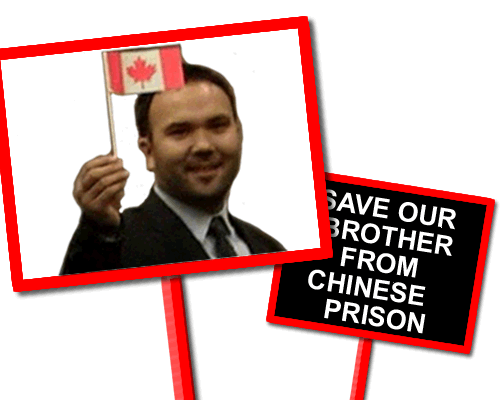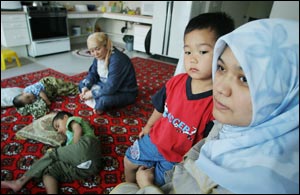Missing in China-Still no word from Canadian human rights activist facing death penalty in China
By Sharda Vaidyanath Epoch Times Ottawa Staff | Jul 27, 2006 |

Despite weeks of pressure from the Canadian government, China has yet to release Canadian citizen and Burlington resident Huseyincan Celil, who was arrested because of his political activism on behalf of human rights in China's Xinjiang Province and who faces a possible death sentence.
Foreign Affairs spokesperson Pamela Greenwell confirmed that he is in Chinese custody but specifics about his whereabouts and well-being are still unknown. Greenwell said that "the communication is ongoing to secure Consular visits."
The Chinese consider Celil "a terrorist" and that is very worrying, said Alex Neve, Secretary General of Amnesty Canada, which launched a letter writing campaign on Celil's behalf in April when he was extradited by Uzbekistan to China.
Celil, 37, was visiting his in-laws in Uzbekistan, accompanied by his wife and children, when authorities arrested him on March 27, and secretly deported him to China roughly a month ago. Neve said, "obviously he didn't think the risk was serious." Amnesty is in touch with his family and the situation for his pregnant wife is "very stressful." Neve said.
Neve added that the Canadian government needed "a very intense and comprehensive strategy" to deal with this case and that Canadians must maintain high level pressure to secure Celil's release. Neve said, "It is precisely at such a time when you are held in incommunicado detention that the risk of serious human rights abuses, most particularly torture, exists." He explained that torture was very commonplace in China, a country that he said routinely victimized weak detainees.
Celil, who worked for the human rights for the Muslim Uighur minority of China's northwest Xinjiang Province, fled China's persecution of that community in 1994 and was sentenced to death in absentia for his political activism. He came to Canada in 2001. After obtaining refugee status, he subsequently became a Canadian citizen, settling with his family of four young children in Burlington.
In many ways, Xinjiang Province suffered a fate similar to Tibet since the predominantly Han Chinese took control of the province in 1956. The discrimination and lack of rights the Uighur Muslim minority faced pushed them towards separation from Mainland China. Huseyincan Celil fought for freedom from Communist control of his people and province and is therefore considered a threat to China.
Uzbekistan, much like other central Asian republics, has a security arrangement with Beijing to turn in outspoken separatists or political activists. According to the Amnesty International website, China is using the War on Terror that began after the September 11 attacks to harshly suppress many political dissidents.

























